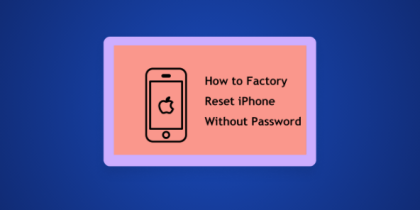By the year 2025, expectations of internet users are more than privacy from their VPN. Users want speedy access without sacrificing security. This is where VPN protocols come into play. A VPN protocol affects how fast your data travels, and how secure it is from unwanted sniffers in, for instance, a 4K stream, a gaming session, or an office job while working remotely.
Among all providers, PureVPN stands out by offering a plethora of modern protocols; WireGuard and OpenVPN, allowing you to simply switch back and forth between speed, stability, and a top-tier encryption. Now let’s look into what protocols fare better, and how to choose the best protocol for your online life.
What Is a VPN Protocol and Why Does It Matter?
A VPN Protocol is a technical framework to know how encrypted data travels from your device to the VPN server. It basically defines the rules for establishment of a secure tunnel, how to handle encryption keys, and moving packets efficiently across networks. Different protocols will, in turn, affect connection speed, latency, reliability, or security.
A lighter protocol like WireGuard, for instance, can reduce processing time as data is encapsulated for transmission, while a heavier protocol such as OpenVPN may be much stronger in encryption and privacy protection. Ultimately, your VPN is as fast and secure as the protocols it is using, thus the decision matters significantly for both security and speed.

What Makes a VPN Protocol Fast and Secure?
Not all VPN protocols provide the same security and performance comfort level. The best protocols find a happy balance between encryption strength and performance on the network. Here are the main metrics that define a fast and reliable VPN protocol:
- Encryption Algorithm determines how strong the protection will be on data, e.g., AES-256 or ChaCha20.
- Efficient handshakes determine connection speed, the faster the key exchange, the faster a connection can be made.
- High latency will affect the stability of gaming, streaming, and video calls.
- Efficient protocols will consume less CPU and less power.
- Good protocols will perform the same on multiple devices like Windows, macOS, iOS, Android, and Linux.
PureVPN automatically optimizes all of these elements, consequently, letting users connect through the best protocol available for their device, with the location also factored in, without any manual toggling.
The Best VPN Protocols in 2025 for Speed and Security
The optimal VPN protocol affects how fast and secure your connection can be. Each offers its own balance between speed, encryption, and reliability, allowing you to stream, game, or browse freely.
WireGuard – Fastest and Most Efficient
WireGuard has emerged as the new gold standard for VPN technology. It achieves lightning-fast speeds while maintaining amazing security due to its small codebase and focus on modern cryptography (ChaCha20 for encryption and Poly1305 for authentication). As a result, WireGuard is less susceptible to vulnerabilities and faster reconnection speeds.
If you are a gamer, a streamer, or you use a VPN connection for work or for the content available on OTT platforms like Netflix and YouTube, you will appreciate PureVPN’s WireGuard-enabled protocol. It gives users low-latency, quick reconnections, and speed throughout the use of the connection.
OpenVPN – Proven and Highly Secure
OpenVPN is a long-established frontrunner in the industry, and it is still the most trusted open-source VPN protocol, utilizing AES-256-bit encryption, including perfect forward secrecy, which creates a balance of flexibility and strength.
Users can choose to use either UDP, for fast speeds, or TCP, for a reliable connection, making it an excellent option for secure browsing and file sharing. PureVPN offers users both modes of OpenVPN to ensure reliable and privacy-first experiences while maintaining tunnel stability.
IKEv2/IPSec – Best for Mobile Stability
IKEv2/IPSec is the best choice for mobile users. It reconnects automatically when switching from WiFi to mobile data, making it a reliable option for on-the-go browsing. With the combination of strong encryption and quick handshake times, it provides outstanding performance on mobile phones and tablets.
The IKEv2/IPSec protocol provided by PureVPN keeps mobile connections secure and stable, making it a go-to service for travelers and corporate users who need to maintain connectivity to the internet at all times.
SSTP – Reliable for Windows Users
SSTP (Secure Socket Tunneling Protocol) is substantially integrated within the Windows operating system, using SSL/TLS encryption (similar to that used for HTTPS websites) to bypass most firewalls and network restrictions.
While it provides excellent privacy to users on Windows, it lacks versatility when compatibility in cross-platform applications is needed. Nevertheless, PureVPN offers this as an option to choose if you work on Windows-only environments or have strict corporate networks.
L2TP/IPSec – Decent but Outdated
L2TP/IPSec is a “double-encapsulation” protocol that combines tunneling and encryption. While L2TP/IPSec offers security and reliability, due to the double encapsulation process, it is generally slower and far less versatile compared to what you can find today, as new protocols emerge that are more reliable and faster.
Nonetheless, PureVPN retains support for users who require legacy support when connecting to more restrictive networks that block the use of modern protocols.
PPTP – Obsolete and Unsafe
While it was once appreciated for its ease of use and speed, PPTP has fallen out of favor because of weak encryption and known vulnerabilities. Although you may still see it available in some old devices, it is not recommended for any security-sensitive purpose.
Thus, PureVPN no longer recommends PPTP and suggests the use of tested audited protocols like WireGuard and OpenVPN.
How to Choose the Right VPN Protocol
Choosing the right VPN protocol depends on how you use your connection. PureVPN allows you to switch between these protocols seamlessly, always ensuring a perfect balance of speed and security, regardless of your device or network conditions.
- WireGuard is preferred for streaming and gaming because of its fast speed and low latency.
- OpenVPN is suggested for maximum security due to its industry-standard encryption and reliability.
- IKEv2/IPSec is the best VPN protocol for mobile stability as it’s efficient and auto-reconnects for mobile.
- SSTP or L2TP/IPSec is ideal for legacy or restricted networks since they function well with old systems or under strict firewalls.
Final Word
In 2025, the quickest and most reliable VPN experience comes from a provider that manages multiple protocols smartly. WireGuard is undoubtedly the fastest, but OpenVPN and IKEv2/IPSec do have important roles to play in the areas of reliability and dependability across different devices.
With PureVPN, you do not have a choice between speed or security because you are going to get both. With advanced protocol management, broad coverage of global servers, and a privacy-first design, PureVPN is certainly among the best options for users looking for a consistent, high-performance VPN experience at all times and worldwide.








